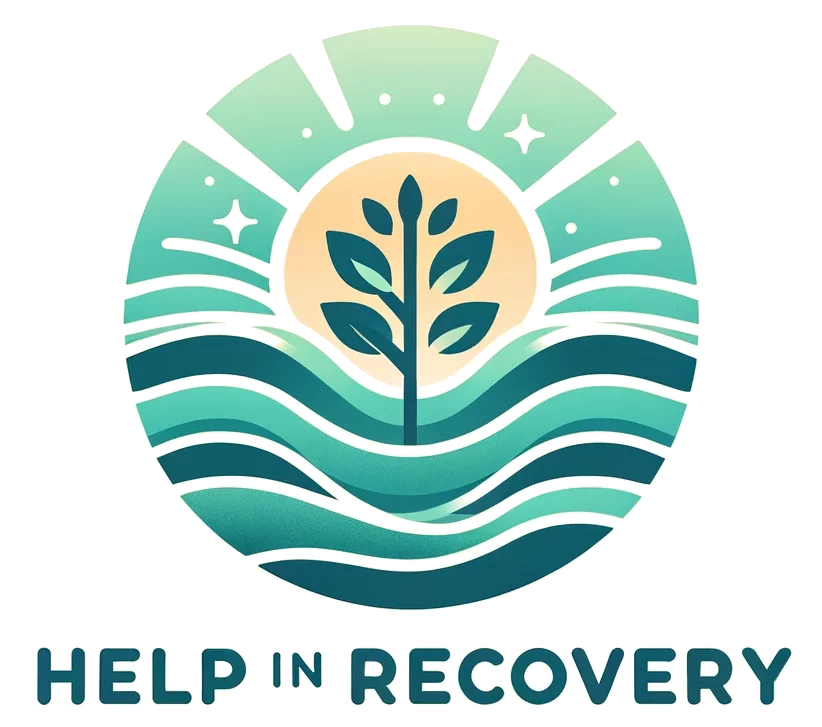The Science Behind Recovery Coaching: Rewiring the Brain in Addiction Recovery
Recovery coaching is a unique way of helping people beat addiction. It combines caring support with science. In this article, we look closely at how addiction affects the brain and mind. We also see how recovery coaches use this knowledge to help people.
Addiction is complex. It involves the brain’s chemistry and our emotions and experiences. Substances that cause addiction change the brain’s reward system, mainly how it uses dopamine. This is key to understanding addiction. Also, things like stress, trauma, and mental health issues can make addiction worse.
We will explore how the brain can change and heal during recovery. We call this neuroplasticity. Recovery coaches use this science to guide people to a healthier life.
This article will show the mix of science and kindness in recovery coaching. This mix is why many people find hope and help in recovery coaching on their way to getting better. For a comprehensive guide to Recovery Coaching, we have prepared a guide here.
Recovery Coaching Science Key Takeaways
| Aspect | Key Takeaways |
|---|---|
| Understanding Addiction | Addiction involves both brain chemistry and emotional experiences. Substances alter dopamine levels, influencing addiction. |
| Brain’s Plasticity in Recovery | The brain’s ability to adapt, known as neuroplasticity, plays a crucial role in recovery, allowing the brain to heal and form new healthy pathways. |
| Role of Recovery Coaching in Brain Rewiring | Recovery coaches support the healing process by creating a supportive environment, guiding behavioural changes, and assisting with emotional regulation. |
| Recovery Coaching and Psychological Support | Addressing psychological aspects and building resilience are essential. Coaches provide personalized support, with special attention to women’s unique recovery needs. |
| Integrating Recovery Coaching with Other Therapies | A holistic approach combining recovery coaching with other therapies enhances the effectiveness of addiction treatment. |
| Case Studies and Research | Real-life success stories and research underline the positive impact of recovery coaching on long-term recovery success. |
| Conclusion | Recovery coaching is a blend of scientific understanding and empathy, crucial for effective addiction recovery. |
Section 1: Understanding Addiction
Neurological Basis of Addiction
The brain is like a control centre for our feelings and actions. Substances that lead to addiction affect this control centre. They mainly change how the brain uses a chemical called dopamine. Dopamine is essential because it makes us feel good when we reward things, like eating our favourite food or spending time with friends. However, addictive substances trick the brain into releasing more dopamine than usual. This makes people feel a strong urge to keep using these substances.
For instance, when someone uses drugs, their brain releases a lot of dopamine. This creates a powerful feeling of happiness or a ‘high.’ Over time, the brain gets used to these high levels of dopamine. It starts to need the substance to feel good or even average. This is a big part of why addiction is hard to overcome.
Here’s a link to an easy-to-understand article about how addiction affects the brain. It explains these ideas in more detail.
Psychological Aspects
Addiction isn’t just about brain chemistry. Our emotions, thoughts, and life experiences also play a significant role. For some people, stress or sadness can make them turn to addictive substances. These substances might seem like a way to escape hard feelings or problems.
Trauma is another significant factor in addiction. Trauma means hard or scary experiences that leave a lasting impact. People who have faced such experiences might use addictive substances to cope with their pain or memories.
Mental health issues, like depression or anxiety, can also lead to addiction. Sometimes, people with these issues might not get the help they need. So, they might use substances to feel better or less worried.
Understanding these emotional and mental factors is essential. It helps us see why some people might struggle with addiction. It also shows us that treating addiction isn’t just about stopping the substance. It’s also about helping the person with their feelings and experiences.
Section 2: The Brain’s Plasticity in Recovery
Neuroplasticity in Recovery
Our brains have a unique ability called neuroplasticity. This means the brain can change and adapt over time. When someone is recovering from addiction, their brain can start to heal itself. This healing is a vital part of recovery.
Neuroplasticity works by changing the brain’s connections. When someone stops using addictive substances, the brain begins to adjust. It starts to reduce its dependence on these substances. This is like learning to ride a bike. At first, it’s hard, but with practice, your brain learns, and it gets easier.
During recovery, as people learn healthy habits, their brains build new pathways. These pathways support a life without addiction. The brain learns to find joy and reward in healthier activities, like exercising or spending time with loved ones.
An interesting article on neuroplasticity explains more about how our brains can change and adapt.
Brain Changes with Recovery
When someone is on the path to recovery, their brain undergoes fundamental, physical changes. These changes can be seen in brain scans. For example, areas of the brain that were damaged by addiction can start to recover. This can lead to better thinking, more control over actions, and improved feelings.
As the brain heals, people often find that their cravings for addictive substances get weaker. They start to feel more in control of their lives. They might also notice improvements in their mood and how they handle stress.
This part of recovery is very hopeful. It shows us that even after addiction, the brain can get better. People can learn new ways of living that support their health and happiness.
Section 3: The Role of Recovery Coaching in Brain Rewiring
Creating a Supportive Environment
Recovery coaches play a big part in helping people change their lives after addiction. They create a space where people feel safe and supported. This kind of environment is essential for healing. It’s like having a good friend who’s always there to listen and help.
A recovery coach listens carefully and understands what someone is going through. They help people see their strengths and encourage them to make positive changes. This support makes a big difference. It helps people believe in themselves and stay strong in their journey to recovery.
Behavioural Change and Brain
Recovery coaches also help people develop new habits that are good for their health and happiness. This is a vital part of changing the brain’s wiring. When people learn healthy ways to live, their brain creates new pathways. These pathways are like new brain roads leading to better choices and a healthier lifestyle.
For example, a recovery coach might help someone start an exercise routine or find a new hobby. These activities can replace the time spent on addictive behaviours. They also release healthy chemicals in the brain, like endorphins, which make people feel good.
Emotional Regulation
Handling emotions is another big part of recovery. Recovery coaches teach skills to manage feelings like sadness or stress. This is important because strong emotions can sometimes lead people back to addiction.
A recovery coach helps people find healthy ways to deal with their emotions. This might be through talking, writing, or other activities like yoga or meditation. Learning to handle emotions healthily is a big step towards recovery. It helps the brain to rewire itself and reduces the risk of returning to addictive behaviours.
Section 4: Recovery Coaching and Psychological Support
Addressing Psychological Factors
Recovery coaching helps people understand the emotional and mental challenges linked to addiction. Coaches support their clients in several ways:
- Exploring Emotional Triggers: Identifying feelings or situations that might lead to substance use.
- Understanding Personal History: Discussing past experiences, including trauma, to understand their impact on addiction.
- Developing Coping Strategies: Teaching healthy ways to deal with stress or sadness.
This approach helps clients better understand themselves and develop healthier coping mechanisms. More on this can be found in this informative article about psychology’s role in addiction treatment.
Building Resilience
Building resilience is crucial for lasting recovery. Recovery coaches work on strengthening their client’s ability to handle life’s challenges:
- Positive Thinking: Encouraging a positive outlook and self-belief.
- Goal Setting: Helping clients set and work towards achievable goals.
- Building Support Networks: Assisting in creating solid and supportive relationships.
These skills empower clients to maintain their recovery journey, even during tough times.
Particular Focus on Women’s Recovery Needs
Women often face unique challenges in addiction and recovery:
- Specific Stressors and Trauma: Addressing issues like domestic violence or caregiving stress.
- Emotional Needs: Understanding and supporting the emotional experiences unique to women.
- Customised Support: Tailoring recovery strategies to fit women’s specific needs.
This tailored approach ensures women receive the proper support for their recovery journey. A helpful resource on this topic is available here.
Section 5: Integrating Recovery Coaching with Other Therapies
Recovery coaching works best when combined with other forms of therapy. This approach ensures a well-rounded recovery. Let’s look at how this integration happens:
Collaborative Approach
Recovery coaches often work alongside other health professionals. This teamwork helps in providing comprehensive care. Key aspects include:
- Working with Therapists: Coaches and therapists can share insights to understand better and support the client.
- Combining Strategies: Using techniques from different therapies, like Cognitive Behavioral Therapy (CBT), alongside coaching.
- Medication-Assisted Treatment: For some, combining recovery coaching with medications can be effective.
This collaborative approach ensures that all aspects of a person’s recovery are addressed. An article discussing the integration of different therapies in addiction treatment can be found here.
Holistic Recovery Model
A holistic model looks at the entire person – their mind, body, and social environment. Recovery coaching fits well into this model by addressing various aspects:
- Mental Health: Helping with emotional and psychological well-being.
- Physical Health: Encouraging healthy habits like exercise and proper nutrition.
- Social Support: Assisting in building a supportive community and mending relationships.
The recovery process becomes more effective and sustainable by covering all these areas.
The Role of Recovery Coaches in Holistic Treatment
Recovery coaches play several vital roles in a holistic treatment plan:
- Mental Health Support: They provide a listening ear and emotional support, complementing clinical mental health care.
- Lifestyle Changes: Coaches encourage and help implement lifestyle changes that support recovery.
- Bridge to Resources: They link to other resources and therapies, ensuring a seamless recovery journey.
Comparison Table: Recovery Coaching vs. Clinical Addiction Treatment
| Aspect | Recovery Coaching | Clinical Addiction Treatment |
|---|---|---|
| Approach | Holistic, combining science and empathy | Clinical, focused on therapy and medical treatment |
| Primary Focus | Empowering individuals, building resilience | Treating addiction as a medical condition |
| Emotional Support | Offers personalized emotional support | Emphasizes therapy and medical interventions |
| Neuroplasticity | Utilizes neuroplasticity for brain rewiring | May not always address neuroplasticity |
| Integrative Approach | Combines coaching with other therapies | Primarily relies on therapy and medication |
| Personalized Guidance | Tailored to individual needs and experiences | Follows standardized treatment protocols |
| Psychological Aspects Addressed | Addresses emotional triggers, trauma, and mental health | Mainly focuses on the psychological aspects of addiction |
| Long-term Success | Focuses on sustained recovery and lifestyle changes | Aims for sobriety but may not always address long-term wellness |
Section 6: Case Studies and Research
Real-life stories and research help us understand the impact of recovery coaching. In this section, we’ll look at some examples and studies that highlight the effectiveness of recovery coaching in addiction treatment.
Real-Life Success Stories
Case studies of individuals who have gone through recovery can be very inspiring. These stories often show:
- Personal Challenges: The unique difficulties each person faces in their journey.
- The Role of Recovery Coaching: How a coach’s support and guidance helped them overcome obstacles.
- Long-Term Success: The lasting positive changes in their lives post-recovery.
For example, a story might talk about someone who struggled with addiction for years. With the help of a recovery coach, they found new ways to cope with stress and built a supportive community. These changes helped them stay sober and rebuild their life.
Research on Recovery Coaching
Several studies have been conducted to understand the effectiveness of recovery coaching. These studies often explore:
- Recovery Rates: Comparing recovery success rates with and without coaching.
- Behavioural Changes: Looking at how coaching influences lifestyle changes.
- Emotional Well-being: Measuring improvements in mental health and emotional stability.
Research findings generally support the benefits of recovery coaching. They show that people who work with recovery coaches often have better outcomes in their recovery journey.
Case Study Example
A detailed case study might describe a person’s complete recovery journey. It could talk about their initial struggles, how they found a recovery coach, and the specific ways the coach helped them. This could include developing new habits, finding emotional support, and connecting with treatment and resources.
These real-life examples and research studies provide robust evidence of the effectiveness of recovery coaching. To learn more about how recovery coaching is changing lives, check out this informative piece on the impact of recovery coaching.
Conclusion
We’ve explored the fascinating world of recovery coaching and its role in helping people overcome addiction. Let’s recap the key points:
- The Science of Addiction: Addiction affects both the brain’s chemistry and our emotions. Understanding this is crucial for adequate recovery.
- Brain’s Ability to Change: Neuroplasticity shows us that the brain can heal and adapt, even after addiction.
- Role of Recovery Coaches: Coaches provide essential support by creating a nurturing environment, guiding behavioural changes, and helping with emotional regulation.
- Integrating with Other Therapies: Recovery coaching works best when combined with other treatments for a holistic approach.
- Real-Life Impact: Case studies and research confirm the positive effects of recovery coaching on individuals’ recovery journeys.
This journey through recovery coaching highlights the scientific aspects and the human caring side of this practice. Understanding both these elements is critical to effective recovery.
As we conclude, let’s remember the importance of both the neurological and psychological aspects of addiction. Recovery coaching, with its blend of science and empathy, offers a beacon of hope and a path to a healthier, more fulfilling life for those struggling with addiction.
Thank you for joining us on this enlightening journey into the heart of recovery coaching. Whether you’re exploring recovery options for yourself or a loved one or simply seeking to understand more about this vital field, we hope this article has shed light on the powerful interplay of science, empathy, and resilience at the core of recovery coaching.
Frequently Asked Questions (FAQs)
What is Recovery Coaching?
Recovery coaching is a supportive relationship that helps people with addiction to make significant changes in their lives. It combines scientific knowledge about addiction with empathetic, personal support.
How Does Addiction Affect the Brain?
Addiction primarily impacts the brain’s reward system by altering the levels of dopamine, a chemical that creates feelings of pleasure. Over time, this leads to changes in brain function and behaviour.
What Role Does Neuroplasticity Play in Recovery?
Neuroplasticity refers to the brain’s ability to change and adapt. In recovery, this allows the brain to heal and develop new pathways, reducing dependence on addictive substances and promoting healthier behaviours.
How Do Recovery Coaches Assist in the Recovery Process?
Recovery coaches aid by creating a supportive environment, guiding individuals in behavioural changes, and helping with emotional regulation. They provide encouragement, resources, and understanding tailored to each individual’s journey.
Why is Psychological Support Important in Recovery Coaching?
Psychological support addresses underlying emotional and mental health issues that often contribute to addiction. It includes developing coping strategies, building resilience, and providing tailored support, especially for women with unique recovery needs.
Can Recovery Coaching Be Integrated with Other Therapies?
Yes, recovery coaching is most effective when integrated with other therapies. This holistic approach can include psychological therapy, medication-assisted treatment, and lifestyle changes, ensuring comprehensive care.
Are There Any Real-Life Success Stories of Recovery Coaching?
Numerous case studies and research show the effectiveness of recovery coaching. These success stories often feature individuals overcoming personal challenges and achieving long-term recovery with the help of a recovery coach.
For more detailed information on recovery coaching and its impact on addiction recovery, please refer to our comprehensive guide.







